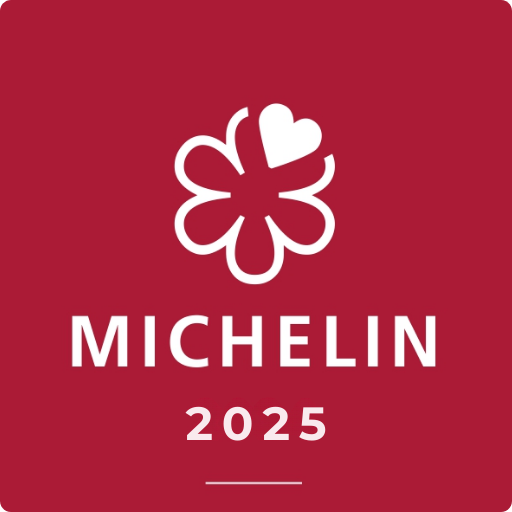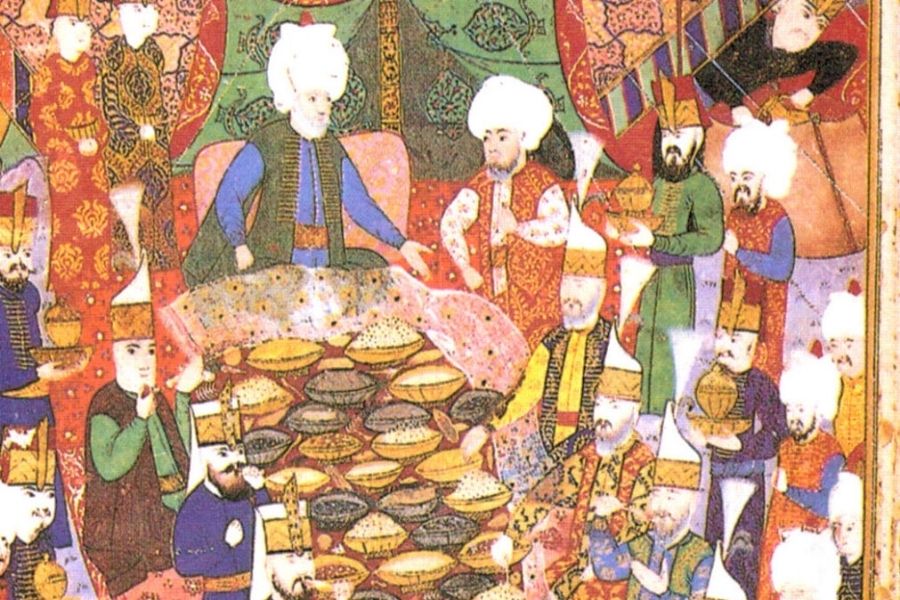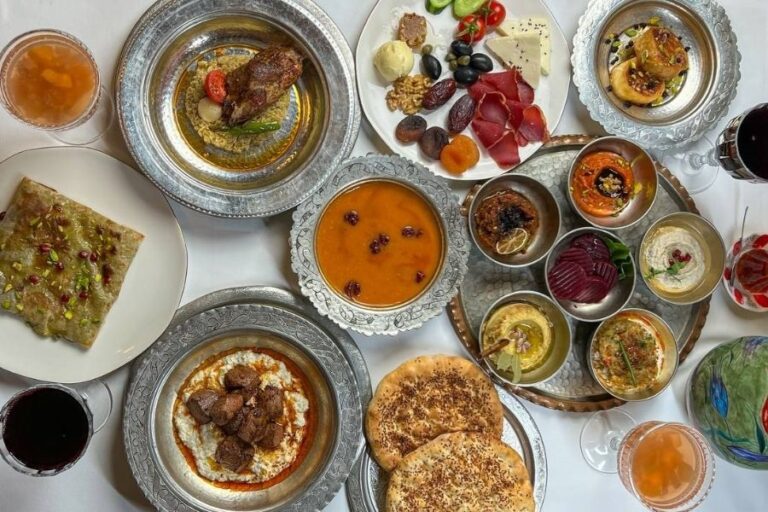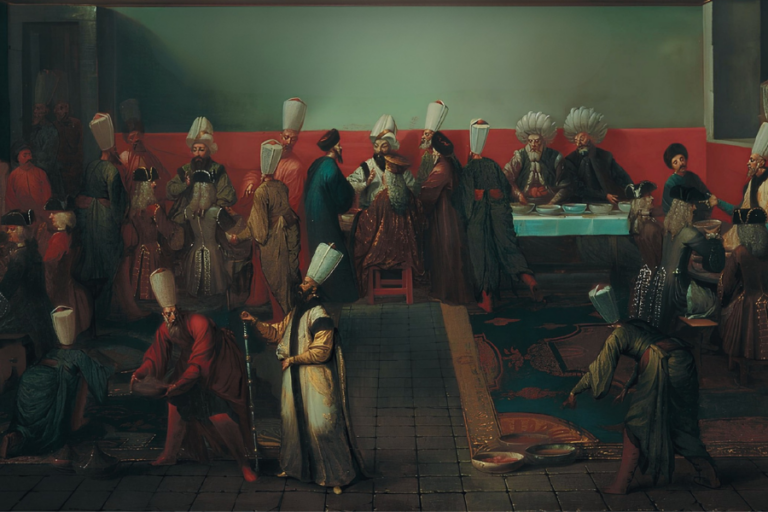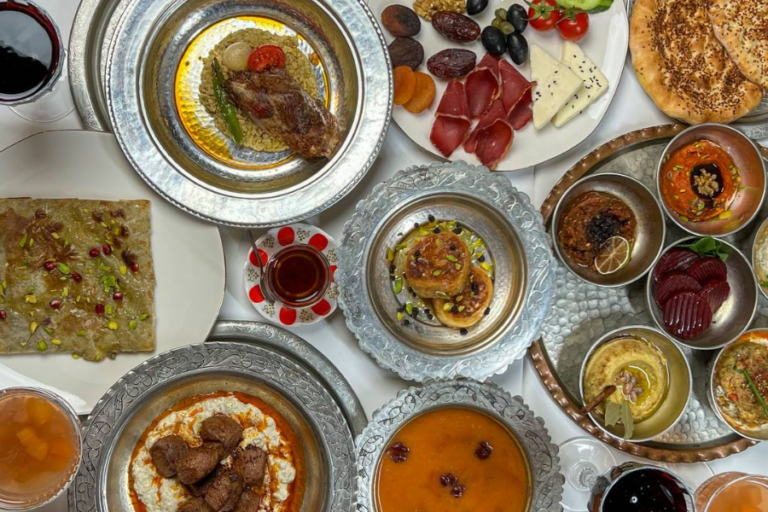The Ottoman Empire has been home to many civilizations throughout history with its cultural diversity and rich cuisine. Ottoman food culture developed under the influence of the empire’s vast geography and different ethnic groups. This rich culinary culture forms the basis of Turkish cuisine today. It is possible to benefit from various sources to better understand Ottoman cuisine.
Ottoman food culture has been enriched by the influence of different cultures for centuries and has survived to the present day. The books written to understand this culture help us go deeper into Ottoman cuisine and discover these unique flavors. Ottoman food culture is not only a cooking tradition, but also a social and cultural heritage. Keeping this heritage alive today and passing it on to future generations is only possible by understanding and learning Ottoman cuisine.
Here are some important books that describe Ottoman food culture and provide in-depth information on this subject:
1- Yüzyıl Osmanlı Mutfağı – Muhammed bin Mahmud Şirvani
Muhammad bin Mahmud Shirvani’s 15th century cookbook is one of the most important gastronomic works of the Ottoman period. Shirvani presented recipes from both Arabic and Turkish cuisine and used his medical knowledge to explain the effects of these dishes on health. This book is the first independent cookbook written during the Ottoman period and is one of the rare products of our cultural history. Shirvani’s work provides not only recipes but also information about the understanding of health of the period.
2- Tercüme-i Kenzü’l-İştiha – Ahmed Cavid
Ahmed Cavid’s “Tercüme-i Kenzü’l-İştiha” presents the subtleties and flavor secrets of Ottoman cuisine to its readers. This book explains in detail the recipes and cooking methods of the dishes prepared in the Ottoman palace kitchen. In addition, the recipes in the book reflect the gastronomic culture of the period and reveal the richness of Ottoman cuisine.
3- Et Terkibat fi Tabhi’l Hulviyyat
“Et Terkibat fi Tabhi’l Hulviyyat” deals in detail with the important place of desserts in Ottoman cuisine and how these desserts were prepared. The book provides information on various dessert recipes and their preparation methods. Ottoman desserts played an important role in the social and cultural life of the period and have survived to the present day.
4- Melceü’t-Tabbâhîn
“Melceü’t-Tabbâhîn” is an important work on the art of cooking in the Ottoman period. The book reveals the diversity and richness of Ottoman cuisine and provides extensive information about the food culture of the period. Melceü’t-Tabbâhîn contains recipes of dishes prepared both in the palace kitchen and in the public kitchen.
5- Kitâb-ı Me’kûlât
“Kitâb-ı Me’kûlât” is a work containing Ottoman food culture and various recipes of this culture. The book describes the food habits of different regions of the Ottoman Empire and the methods of preparation of these dishes. Kitâb-ı Me’kûlât reveals the historical development and diversity of Ottoman cuisine.
6- Sultan Sofraları: 15. ve 16. Yüzyılda Osmanlı Saray Mutfağı – Stefanos Yerasimos
Stefanos Yerasimos’s book “Sultan Sofraları” examines the Ottoman palace cuisine in the 15th and 16th centuries in detail. The book describes the food habits of the period, the banquets organized in the palace and the dishes served at these banquets. In addition, Yerasimos’ work reveals the richness and diversity of Ottoman palace cuisine and explains how this cuisine has survived to the present day.
7- Evliya Çelebi Seyahatnâmesi’nde Yemek Kültürü – Marianna Yerasimos
Marianna Yerasimos’ book “Food Culture in Evliya Çelebi Seyahatnâmesi’nde Yemek Kültürü” examines the food culture in Evliya Çelebi’s travelogue. The book describes the food habits Evliya Çelebi witnessed during his travels and the effects of these habits on Ottoman cuisine. Yerasimos’ work reveals the food culture in different regions of the Ottoman Empire and its reflections in Ottoman cuisine.
8- Selçuklu Mutfağı – Ömür Akkor
Ömür Akkor’s “Selçuklu Mutfağı” emphasizes that Ottoman cuisine has its roots in the Seljuk period. The book deals in detail with the food culture of the Seljuk period and how this culture influenced Ottoman cuisine. The dishes, ingredients and cooking techniques of Seljuk cuisine played an important role in the development of Ottoman cuisine. This book is an important source for understanding the historical background of Ottoman food culture.
